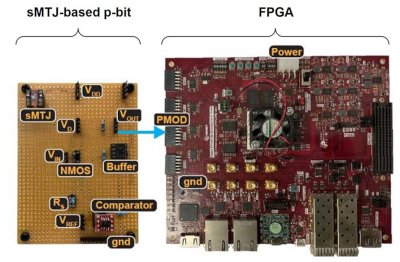Researchers gain better understanding of the magnetization reversal mechanism through topological data analysis
Researchers develop a super-hierarchical and explanatory analysis of magnetization reversal that could improve the reliability of spintronics devices. The researchers, led by Professor Masato Kotsugi from Japan's Tokyo University of Science, have developed an AI-based method for analyzing material functions in a more quantitative manner.
The team quantified the complexity of the magnetic domain structures using persistent homology, a mathematical tool used in computational topology that measures topological features of data persisting across multiple scales. The team further visualized the magnetization reversal process in two-dimensional space using principal component analysis, a data analysis procedure that summarizes large datasets by smaller “summary indices,” facilitating better visualization and analysis.
